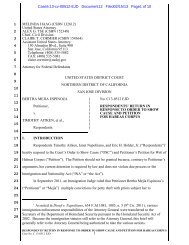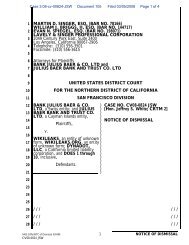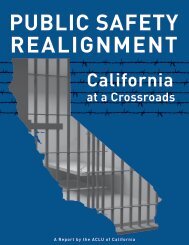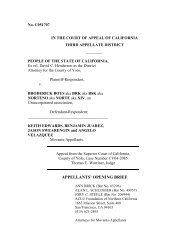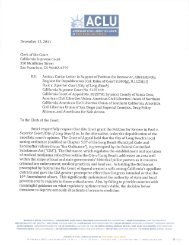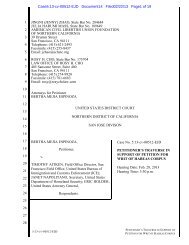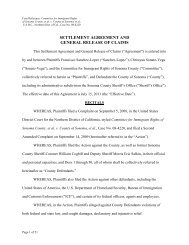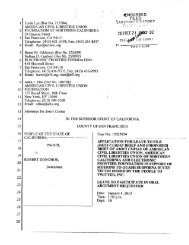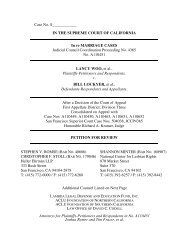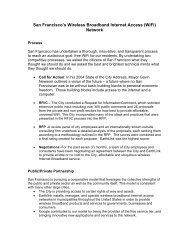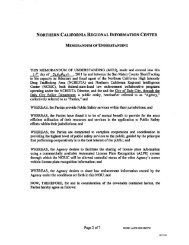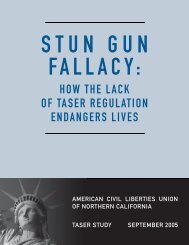1 of 2 - ACLU of Northern California
1 of 2 - ACLU of Northern California
1 of 2 - ACLU of Northern California
Create successful ePaper yourself
Turn your PDF publications into a flip-book with our unique Google optimized e-Paper software.
Case M:06-cv-01791-VRW Document 254 Filed 04/20/2007 Page 27 <strong>of</strong> 3212345678910111213141516171819202122232425262728that the DNI’s prediction <strong>of</strong> harm to national security was unreasonable, nor did it expresslyreject the privilege assertion. Rather, the Court appeared to avoid assessing the harms <strong>of</strong>disclosure identified by the DNI through its own analysis <strong>of</strong> statements by AT&T and theGovernment and conclusions that it drew from these statements. 9 That method <strong>of</strong> analysis, werespectfully submit, was improper. See Kasza, 133 F.3d at 1166 (granting utmost deference toExecutive’s assessment <strong>of</strong> danger to national security); El-Masri, 2007 WL 625130, at *9(same).REDACTED TEXT](U) Notably, cases in which the state secrets privilege has been upheld have rejected theontention that certain information is "not a secret" because it could readily be deduced fromother information. For example, in Kasza itself, the widow <strong>of</strong> an individual who worked at aclassified government facility argued it was absurd to assert privilege over the very existence <strong>of</strong>hazardous waste at that facility. See Kasza, 133 F.3d at 1165. Yet the Government’s assertion<strong>of</strong> privilege over this fact was upheld despite the existence <strong>of</strong> reliable public facts demonstratingthat fact (for example, the health conditions <strong>of</strong> plaintiffs who worked at the facility, which9 (U) The Court’s reliance in part on statements made by a private party in attempting todecide whether information is properly protected under the privilege was not appropriate. Thestate secrets privilege belongs to the Government and only the Government can waive it.Reynolds, 345 U.S. at 7; see also Kasza, 133 F.3d at 1165. Notably, the Supreme Court hasconsistently preserved the secrecy <strong>of</strong> alleged classified relationships even where the privateparty to that relationship itself purported to disclose the central secret in a lawsuit against theUnited States. See Tenet v. Doe, 544 U.S. 1 (2005); Totten, 92 U.S. 105. As to statements bythe Government acknowledging <strong>of</strong> the TSP, whether they have any bearing on whether otherfacts are properly protected under the state secrets privilege must be assessed by looking towhether there is a reasonable danger <strong>of</strong> harm to national security if the Government confirms ordenies the information.Public Memorandum <strong>of</strong> the United Statesin Support <strong>of</strong> Motion to Dismiss or for SummaryJudgment, MDL No. 06-1791-VRW -19-



